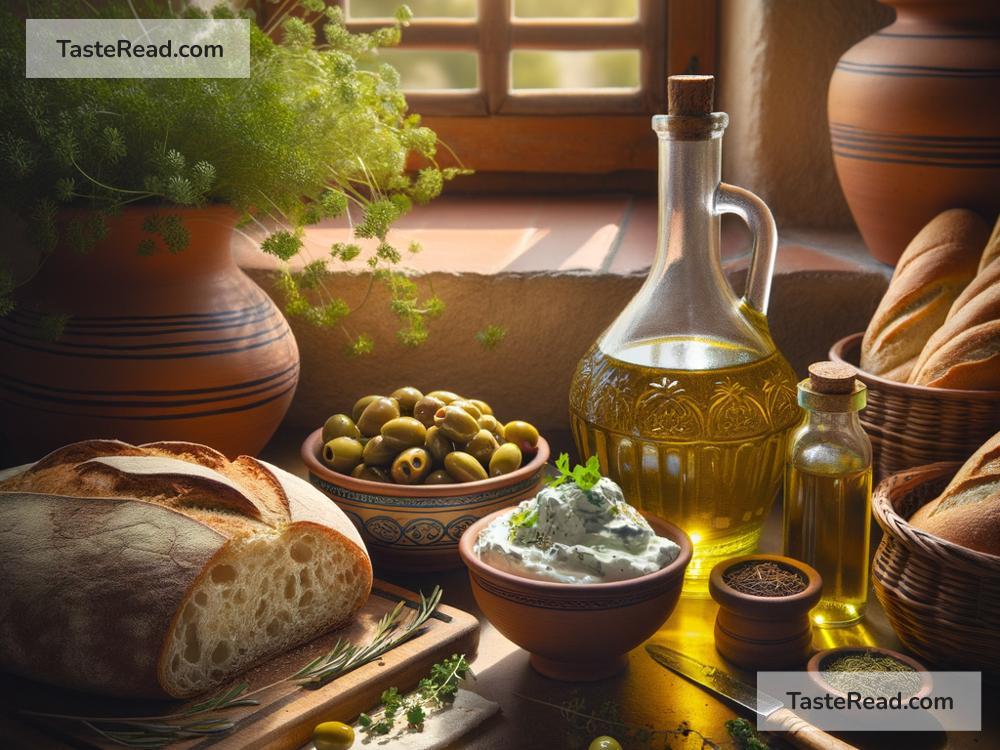The Importance of Olive Oil in Greek Cuisine and Culture
Olive oil is more than just an ingredient in Greek food—it’s a symbol of tradition, health, and history. Known as “liquid gold,” olive oil plays a central role in Greek cuisine and has been a part of the country’s culture for thousands of years. From its use in everyday cooking to its presence in ancient rituals, olive oil has shaped the way Greeks live, eat, and celebrate life.
A Gift from the Gods
According to Greek mythology, olive trees were a divine gift. The story goes that the goddess Athena and the god Poseidon competed to become the patron of the city we now call Athens. Poseidon struck the ground with his trident, creating saltwater, while Athena planted the first olive tree. The people of the city chose Athena’s gift because the olive tree was more useful and provided food, oil, and wood. This myth highlights how deeply olives and olive oil are rooted in Greek identity.
Olive trees are also seen as symbols of peace, wisdom, and prosperity. They are strong, resilient, and can live for hundreds of years, reflecting the endurance and strength of Greek culture.
The Heart of Greek Cuisine
Greek food is famous for its fresh, wholesome flavors, and olive oil is at the heart of many dishes. It’s used as the base for cooking, as a dressing for salads, and as a finishing touch to add flavor to meals. Greeks use olive oil generously, not only for its taste but also for its health benefits.
One of the most popular dishes in Greece is horiatiki, also known as the Greek salad. This simple dish is a mix of tomatoes, cucumbers, onions, olives, feta cheese, and a drizzle of olive oil. The olive oil ties all the ingredients together, adding a rich and smooth flavor.
Another favorite dish is ladera, which means “oily” in Greek. These are dishes made with vegetables, herbs, and lots of olive oil. For example, gemista (stuffed vegetables) and fasolakia (green beans in tomato sauce) are cooked slowly with olive oil to bring out their deep, earthy flavors.
Olive oil is also used in desserts, such as olive oil cakes and cookies, where it adds a moist texture and a subtle nutty flavor. Whether in savory or sweet dishes, olive oil is an essential part of Greek cooking.
Health Benefits of Olive Oil
The Greeks have always believed in the healing power of olive oil. Modern science confirms that olive oil is one of the healthiest oils out there. It’s a key part of the Mediterranean diet, which is often praised for its positive effects on heart health, weight management, and longevity.
Olive oil is rich in healthy fats, antioxidants, and vitamins. It helps protect the body against diseases, reduces inflammation, and supports overall well-being. Many Greeks consume olive oil daily, not only in their food but also as a natural remedy for skin and hair care.
Cultural Significance
Olive oil isn’t just important in the kitchen—it holds deep cultural and spiritual meaning in Greece. In ancient times, olive oil was considered sacred. It was used as fuel for lamps in temples, as an offering to the gods, and as medicine for healing wounds.
Even today, olive oil plays a role in Greek traditions. For example, in Orthodox Christian baptisms, olive oil is used to anoint the child, symbolizing purity and protection. Olive branches are often featured in weddings and celebrations as a sign of peace and love.
Olive farming is also a way of life for many Greek families. Producing olive oil is not just about business—it’s about preserving a connection to the land and continuing centuries-old traditions. Visiting Greece, you’ll often see rows of olive trees stretching across the countryside, reminding you of the deep roots olives have in Greek life.
Bringing People Together
Food is an important way Greeks connect with one another, and olive oil is at the center of it all. Shared meals often feature dishes cooked with olive oil, and the act of pouring olive oil over a freshly baked loaf of bread becomes a simple but meaningful ritual. Eating together, surrounded by good food, family, and friends, creates a sense of community that is a cornerstone of Greek culture.
Conclusion
Olive oil is much more than a cooking ingredient in Greece; it’s a symbol of history, health, and togetherness. For thousands of years, it has shaped the country’s cuisine and culture, connecting ancient traditions with modern life. Its taste enhances Greek dishes, its properties promote health, and its meaning strengthens the bonds between people.
If you ever visit Greece, make sure to savor dishes made with local olive oil. You’ll not only enjoy its rich flavors but also become part of a tradition that has been cherished for centuries.


